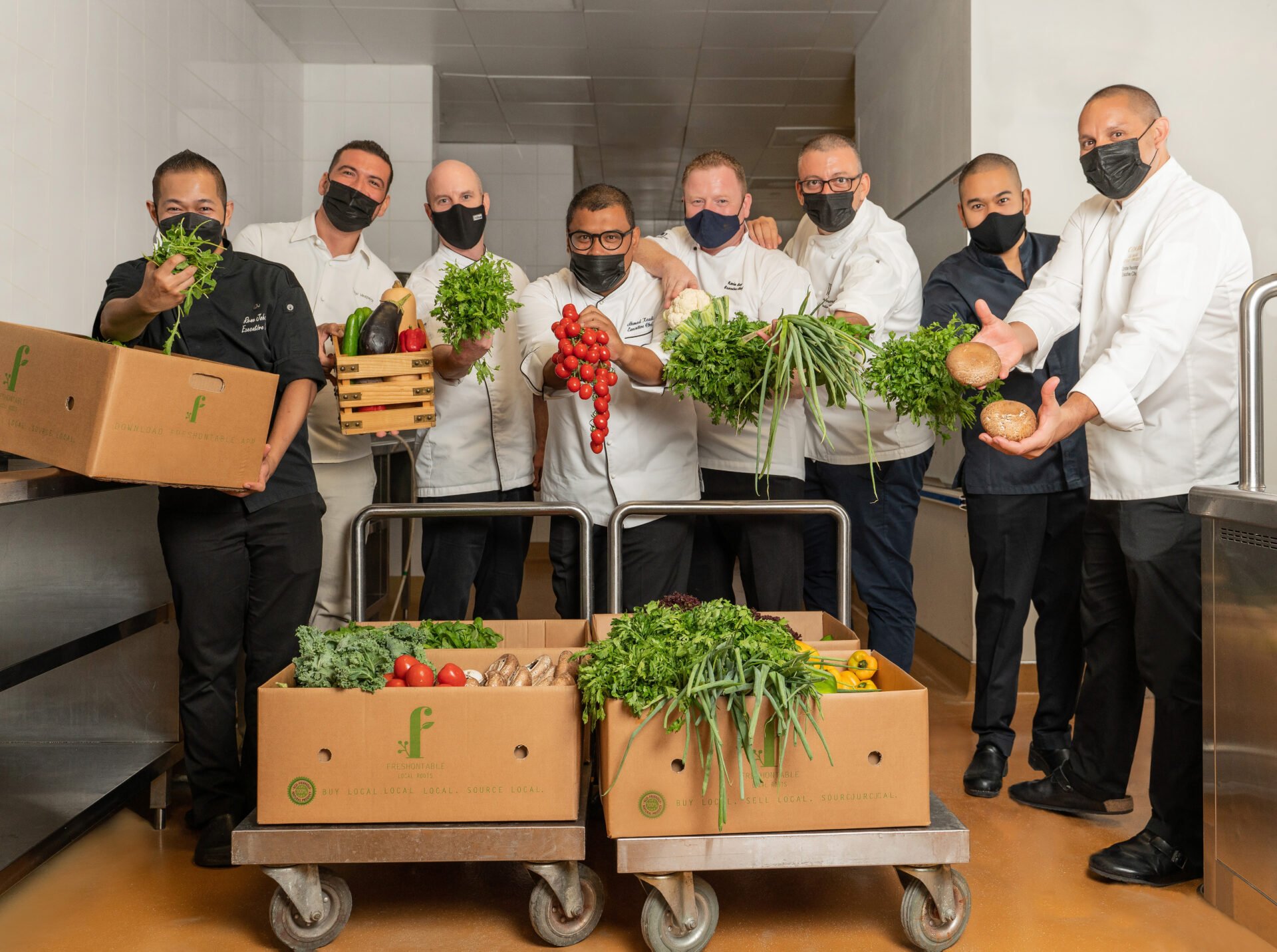Dec 9, 2021
Local Produce Can Only Be Cheaper If Big Companies Commit

Editor’s Note: As correctly put in this article, we need to see large companies, in every industry, doing “everything they can to lead the pack” and “make big volume orders of local produce,” so that “local farms will become more commercially viable and will be able to price more effectively.” We need to support local and small-scale farmers as much as possible so that they’re able to breakeven and continue to supply fresh and delicious tasting produce.
CONTENT SOURCED FROM HOTELIER MIDDLE EAST
Written by: Josh Corder
The regional F&B head for one of the world’s largest hotel companies has called on the industry to invest more heavily into local food produce. F&B strategy and development VP EMEA Emma Banks talks to Hotelier Middle East on how to tackle sustainable dining the right way.

Large companies should be doing everything they can to lead the pack because this will help create a knock-on economic effect. As the sector grows and companies make big volume orders of local produce, local farms will become more commercially viable and will be able to price more effectively.
“Hilton has committed to double its investment in social impact and halve its environmental footprint by 2030. Hilton F&B are heavily involved in supporting this through our strong focus on sustainability – from tracking food waste to sourcing the very best local ingredients,” she explained.
Not only does more local produce do more good for the planet, with fewer vehicles driving for shorter distances, it also does good for the consumer, urged Banks. Hilton has been teaming with local farms across the UAE for its special ‘Growth of the UAE’ menu.
The menu – available until early December – was developed in recognition of this year’s Golden Jubilee. It acknowledges the country’s progression over five decades, providing a platform for chefs to show off the very best of UAE produce and culture.
Banks continued: “The freshness of locally grown ingredients provides guests with an unforgettable gastronomic experience; Produce goes from farm to table, minimising time spent in transit, allowing the ingredients to really burst with freshness.
“Feedback has been overwhelmingly positive. Many guests have told me they can really tell the difference between the Growth of the UAE menu items and dishes cooked using imported ingredients. I have also heard positive feedback about the unique, Middle Eastern-inspired flavour combinations on the Growth of the UAE menu.”
Emma Banks also said, given the menu’s success, Hilton is looking at similar pushes across the likes of Qatar, Egypt and Saudi.
Sadly, at the moment, with local produce comes a higher price tag. This acts as a deterrent for some groups and restaurants as they would much rather import cheaper produce. For Banks, it is only if the whole industry works together can we see a meaningful change.
Emma Banks’ advice to the industry

One of the dishes on the Growth of UAE menu
She said: “Large companies should be doing everything they can to lead the pack because this will help create a knock-on economic effect. As the sector grows and companies make big volume orders of local produce, local farms will become more commercially viable and will be able to price more effectively. Somebody must start first and I am proud to share that Hilton is leading the way with our partnership with Fresh on Table, an agritech platform which sources ingredients from local UAE farms.
“The hospitality industry has a critical responsibility to protect communities and the planet – and the importance of food in this mission cannot be overstated. Sourcing food in a sustainable and responsible manner can help reduce the carbon footprint of ingredients, provide fair employment and so much more.
“I am proud that the hospitality and F&B business have embraced the need for social and industry change. Not only is it the right thing to do to protect the environment for future generations but it also makes great business sense as this is what our customers are looking for. We have a long way to go but we have made a momentous start and together we can achieve a better world by sharing good practice and innovation for the good of future generations.”


